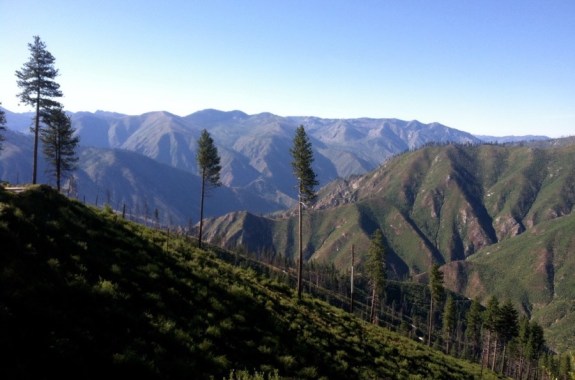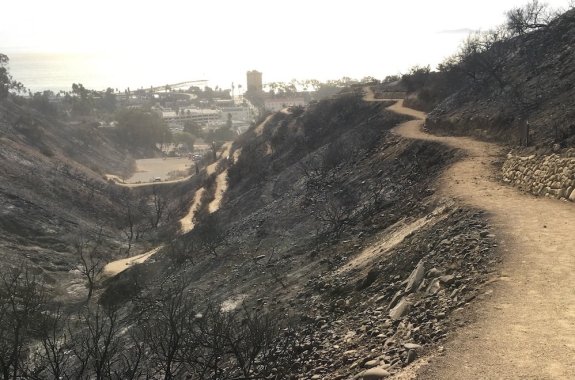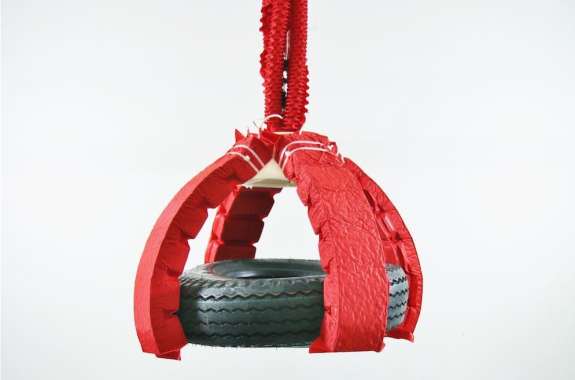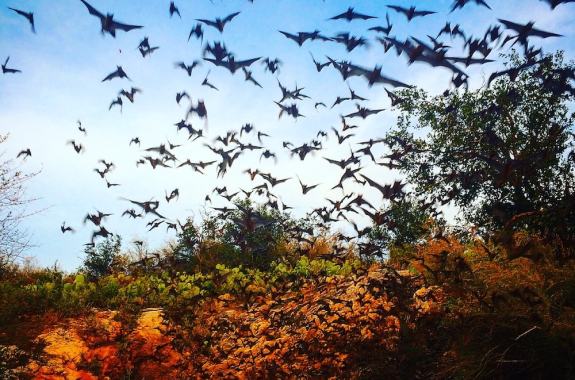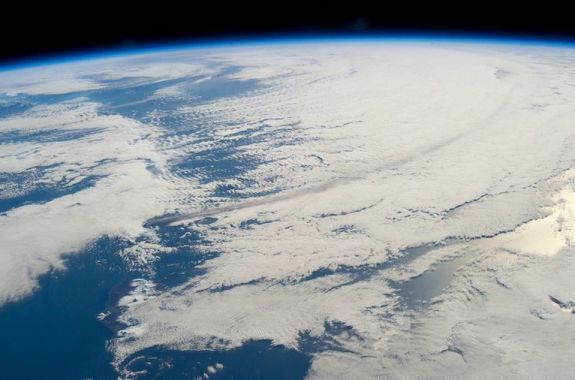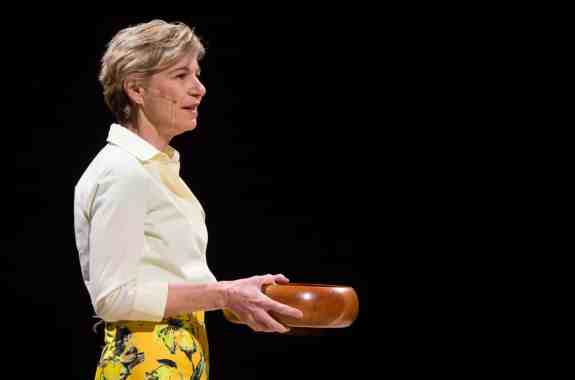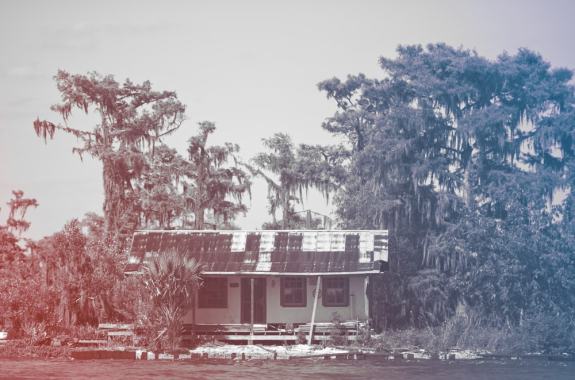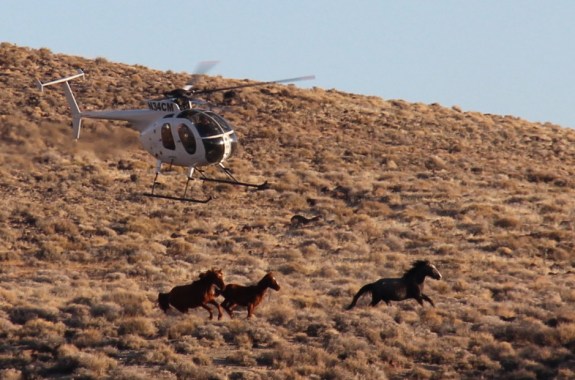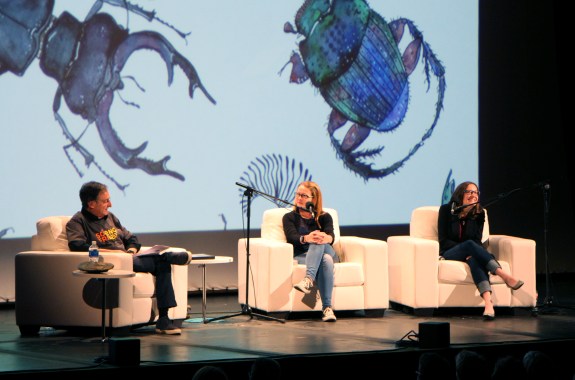Christopher Intagliata was Science Friday’s senior producer, which means he was chief cheerleader for all the radio and podcast projects. He helped to select and shape stories, or put them to a gentle death if necessary. He was also the coordinating producer for Science Friday’s live stage events around the nation, and has skated Olympic ice and served as a prop in an optical illusion for SciFri.
Christopher started at Science Friday as an intern in summer 2008, until the day Ira Flatow called him at home, triggering enormous anxiety about the latest script he’d written, to ask if he wanted to be a producer. His favorite stories usually involve microbes or food or both, but anything can pique his interest—other than ocean chemistry. Sorry.
He also reports regularly for Scientific American‘s “60-Second Science” podcast, and was a 2015 Woods Hole Ocean Science Journalism fellow. Prior to becoming a science journalist, he taught English to soldiers and bankers in Verona, Italy, and traversed the Sierra Nevada mountains as a field biologist, on the lookout for mountain yellow-legged frogs. He speaks fluent Italian, awkward Japanese, and passable Ira Flatowese.
He is now an editor for All Things Considered.
12:00
Humans Outweigh Climate’s Influence On Fire
In heavily populated regions, the human influence on fire appears to override the effects of climate change.
11:51
The Recipe for California’s Wildfires? A Wet Winter And A Sweltering Summer
Epic rains and snows quenched California’s drought earlier this year. But record summer temperatures and dry, searing winds triggered a devastating wildfire season.
9:53
Super Strong Robot ‘Muscles’ Inspired By Origami
The flexible muscles have a skeleton inspired from the delicate paper folds of origami—and they can lift objects a thousand times their own weight.
17:42
How Do Bats Communicate?
Bioacoustician Laura Kloepper uses ziplines, drones, and hawks to decode the mysterious communication of bats.
26:36
Could Tweaking The Atmosphere Help Us Fight Climate Change?
A controversial technique for combating climate change has caught the Congress’ eye.
17:29
Defending Science In A ‘Post-Truth’ Era
Sue Desmond-Hellmann, CEO of the Gates Foundation, says scientists and science journalists can do more to help the public think critically about scientific news.
17:34
A Mortician’s Search For ‘The Good Death’
Caitlin Doughty traveled the world to document how different cultures deal with their dead. Now, she challenges us to develop a better relationship with mortality.
5:02
How Frequent Floods May Uproot Whole Neighborhoods
Reporter Molly Peterson interviewed residents from two flood-prone Louisiana communities, who may be paid by the federal government to move.
17:06
Big Trouble Managing Mustangs
Some 75,000 wild horses roam the sagebrush-lined slopes and basins of the American West—and the government can’t figure out what to do with them.
17:42
When Dung Is What’s For Dinner
Dung and carrion beetles dine on pretty unsavory items. But this cleanup crew is essential for the world’s nutrient recycling.
